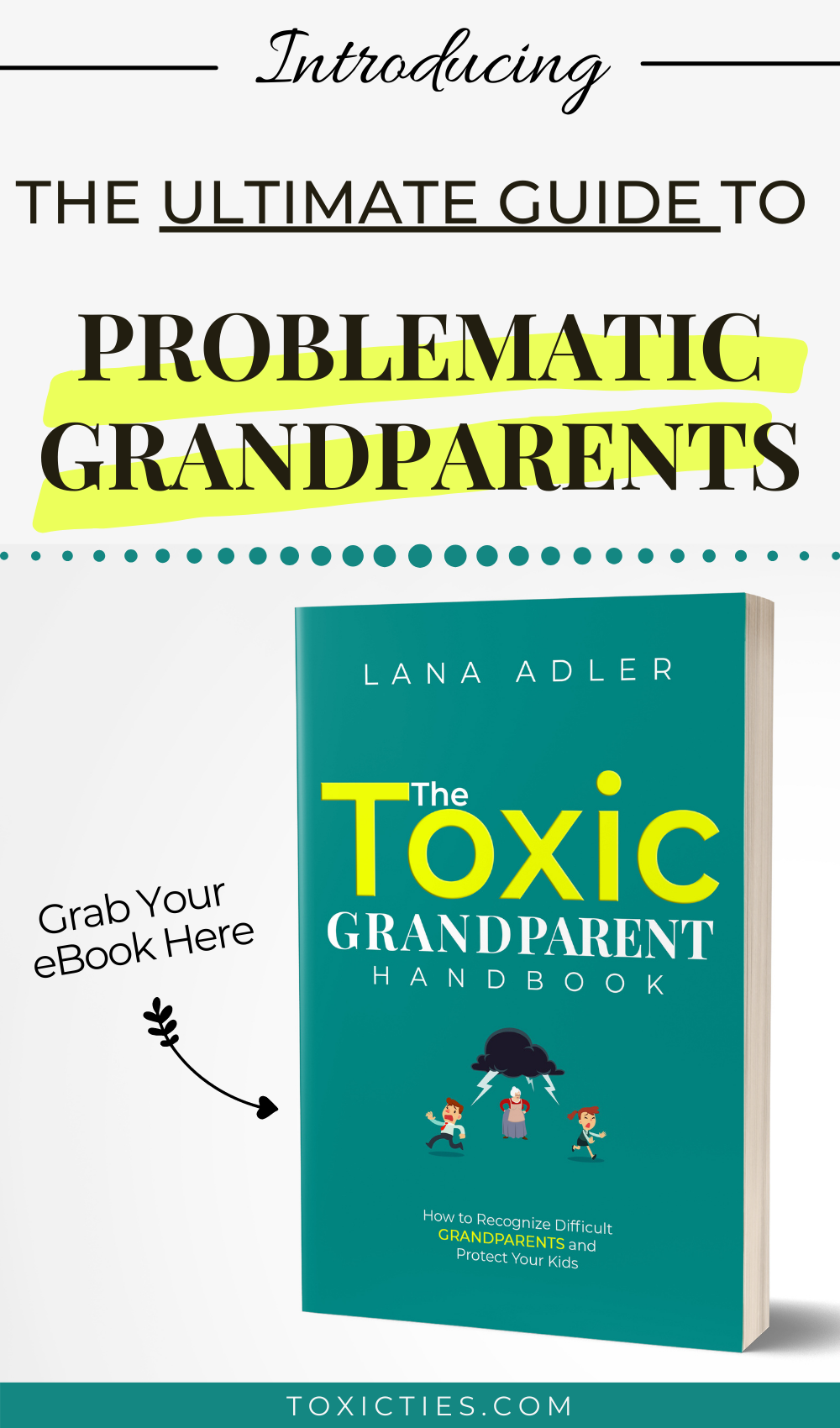Are you self-aware enough to recognize difficult personality traits in yourself? Here are 13 subtle signs you may be a toxic person.
This blog is all about learning and healing from abusive relationships. So naturally, we talk a lot about toxic individuals such as pathological liars, manipulators, narcissists, etc.
But now it’s time to address one uncomfortable possibility: What if you are a toxic person?
In all my time writing and consulting on these issues, I must’ve spoken to thousands of people. But self-professed “toxic” individuals only contacted me a handful of times.
One of them wanted to reconcile with her daughter. She was asking me to teach her how to “stop being toxic.” But at the same time, the letter was very passive-aggressive, with accusations and veiled insults in my direction.
That is to say that no one wants to admit they are difficult, let alone toxic. And even if we admit it, we’re not always willing to take accountability for our actions or make efforts to change.
So you reading this post is a BIG DEAL. It shows you care about how your actions affect others. It’s a GOOD SIGN.
But it’s difficult to see yourself objectively. It requires a great deal of self-reflection and insight to recognize and own your flaws. What if, unbeknownst to you, you are a toxic person?
Here are 13 signs you may be a difficult or toxic individual.
13 SIGNS YOU ARE A TOXIC PERSON

1. People avoid your company
The first and most obvious indication of your toxicity is that people don’t seem to want to spend time with you or talk to you. They
- don’t visit unless you invite them
- leave as soon as possible
- cut conversations short
- don’t want to share what’s going on in their lives with you
- stop talking when they see you approaching
- don’t seem to be having a good time around you. There’s no laughter or easy, relaxed conversation. People appear to be stiff, uncomfortable, and eager to leave.
If that’s the case, you probably exhibit toxic behaviors toward them.

2. You act out your feelings
You aren’t good at expressing your feelings, so you act them out. This is a dysfunctional communication style known as “emotional contagion.”
Instead of telling people how you feel, you make them feel what you feel. So if you’re upset, you make everyone around you upset and scrambling to make you feel better.
You don’t do it intentionally. It’s just the only way you know how to cope with uncomfortable feelings.
However, if you truly care about how your actions affect others, you should know that this behavior pushes people away and makes them want to avoid you like the plague.

3. You expect people to be mind-readers
You expect people to read your mind and know what you want.
When they inevitably fail, you get upset and assume the role of the victim.
“No one cares about me.”
Sometimes we can intuitively know or sense what the other person wants or needs. But even then, presuming to know is different from knowing.
You have to be more direct and outspoken about your needs.
It doesn’t mean that people owe it to you to satisfy them.
But at least this way you’re honest about what’s important to you. You’re not pretending or playing a role. Honesty can be very liberating. Plus, you’re not always upset with your loved ones for failing to “guess” what you want.
4. Your relationships are rocky or shallow
You have no friends or a few superficial friendships. It would be more accurate to say that you have old acquaintances and “frenemies.”
If you are married or dating, your relationship is colored by dissatisfaction, power struggles, and resentment.
You show little respect or appreciation for the other person, and consider them below you.
If you are a parent, the relationships with your children are also rocky and distant.
5. You are a misanthrope
A misanthrope is a person who feels contempt for the human species as a whole.
They always assume the worst of people, and people act accordingly. It’s a self-fulfilling prophecy.
Are you a born misanthrope? If so, you see most people as selfish, ungrateful, and rude. A select few can live up to your high standards.
You are also hypercritical of yourself, although you cover it up with false arrogance and a sense of superiority.

6. You are a pessimist
Overall, you see the negative side of things. The glass is always half-empty with you. The weather is terrible, the people are stupid, and the world is going to hell in a handbasket.
Sometimes pessimism can be justified. But if you’re consistently pessimistic about everything, it can be toxic for the people around you.
Nobody wants to spend time with a person who’s negative all the time. It’s draining.
7. You are never wrong
You never admit that something is your fault.
Even when your mistake is glaring, or when you clearly hurt someone, you are still Ms./Mr. Innocence.
Instead of admitting you were wrong, you find a “fall guy” and shift the blame unto them.
You think that admitting fault is a sign of weakness and that people will only respect you if they think you’re strong.
Boy, did you get this one wrong! Taking responsibility for one’s actions is one of the most powerful displays of integrity, confidence, empathy, and strength.
It sustains and deepens our connections with other people. Shifting blame weakens them.

8. You like to give advice
Giving advice isn’t necessarily toxic.
But if you think you always know best, and you have an annoying habit of giving unsolicited advice, it is a problem.
Most people don’t appreciate being talked down to or told what to do.
Instead of rushing to share your opinion or instructions, take the time to listen to the other person. In 90 percent of cases, people just want to be listened to.
If they do ask for your advice, share it. But do so respectfully, while letting them know that your opinion is that of an outsider. Only they can truly know what’s best for them.
This kind of advice-giving won’t put you at odds with people in your life.
9. You are unforgiving
You hold a grudge like no other. If someone upset you, you take it personally, and you never let them live it down.
Even if they’ve apologized, you won’t forgive and forget. Instead, you’ll use it as a weapon to gain the upper hand in the next argument.
Not being able to forgive is a huge personality flaw that puts you at a disadvantage when it comes to relationships.
When you hang on to the past and multiply resentments, it hurts you more than anybody else.
10. You are judgmental
You judge others for the smallest infractions, without giving them the benefit of the doubt.
Sometimes you’re direct and abrasive when you say, “What’s wrong with you?” or “You don’t know anything.”
But mostly, you drop passive-aggressive comments, critical remarks, or even humorous quips to make people feel small, incompetent, and foolish.
This way of relating to other people is toxic and unattractive.

11. You don’t respect differences
You don’t respect people of different cultures or generations. To you, they’re either dumb, immoral, or irrelevant.
It’s your way or highway, and you’re not shy about letting others know about it.
You’re intolerant of contrary opinions and beliefs, be it politics, spirituality, parenting, medical treatments, etc.
That makes you close-minded and, yes, toxic.
12. You give the silent treatments
It’s hard for you to express your emotions. So when you feel hurt or disappointed, you shut down.
Instead of telling another person how you feel and being vulnerable, you stop talking to them, or even acknowledging their existence.
The silent treatment also serves to punish them and put you in control. You’ll only end the silence when they apologize or give in to your demands.
13. You’re prone to jealousy and envy
It’s hard for you to be happy for other people.
When something good happens to a friend of yours, you’ll say “Congratulations!” with a fake smile, but inside you’re tormented by jealousy. You’ll ruminate on how unfair the world is, and wonder why other people get lucky and you don’t.
Or you’ll try to diminish the friend’s happiness by finding the negative sides of their good news. For example, if a friend of yours tells you that she’s pregnant, you might respond with:
“Congrats! Now live it up while you can because once you have a baby, your life is over! And those stretch marks don’t go away, you know.”

DID YOU RECOGNIZE YOURSELF IN THESE SIGNS?
If you’ve recognized yourself in these descriptions, you’ve done the hardest part. You’ve admitted that you might have a problem.
This can be a difficult and humbling realization. But it can also be the beginning of a new, happier chapter in your life.
One thing I want you to know is: exhibiting those behaviors doesn’t make you a bad person. It just means you have a lot of healing to do. And you should be proud of yourself for getting this far. It means you have an amazing potential for transformation.
So don’t judge yourself too harshly. Most people exhibit toxic behaviors from time to time. Besides, a truly toxic person is oblivious to their own poison. You are not.
So how can you move toward healing and repairing the significant relationships in your life? Is it possible to change your “stripes” and act differently?
It won’t be easy because most of your dysfunctional behaviors are habitual. So you’ll have to confront not only your own behaviors but also the attitudes of your culture and your family of origin.
Most likely, you’ve learned these behaviors from a parent or someone else in your own family.
Related: 21 Gut-Wrenching Lies You Learned From Your Narcissistic Parent
But change is possible with patience, awareness, and perhaps the help of a qualified counselor.

So what can you do right here, right now? The first step of the healing process is taking accountability for your actions and apologizing to the people you have hurt.
Remember that your apology should not be backhanded (also known as fauxpology or non-apology apology). You should clearly state what you’ve done wrong without making excuses, and express your remorse.
So saying something like “Sorry you feel this way” or “Sorry, I was drunk” doesn’t cut it.
It’s never too late to mend the fences and ask for forgiveness. It doesn’t mean you’ll be forgiven, or that you’re entitled to it. But it’s a start.
Stay positive, hopeful, and determined to be a better person.
And most importantly, stay committed to your own healing. No one is perfect. But as long as you recognize your limitations and strive to do better in the future, you are on the right path.
NEXT
Never Do These 13 Things When You’re Around Toxic People
Why You Attract Toxic People (8 Reasons That Will Surprise You)








I can’t thank you enough for being so honest in your write-ups! Discovered your blog just today.. and girl.. you’re just Amazing. You’re being soo Honest and Helpful.. And this Article Particularly.. Completely changed my Vision about Myself and Others in Life. Now I feel.. I am the Key to All the Miseries and Happiness and I just need to turn it Right! The Key to Mental and Social Wellbeing is within. Thanks a Lot for this Article and maby others. It’s very Awakening and Thought Provoking and Self-Reflecting in every bit!
Thanks A Lootttt…!!🙏🙏🙏🙏🙏
Thank you so much for your kind words <3 You have no idea how much I needed it today...I love the insight you received, it is truly empowering to realize yourself as the maker of your own destiny!!!
Sincerely,
Lana
I could not resist commenting. Well written!